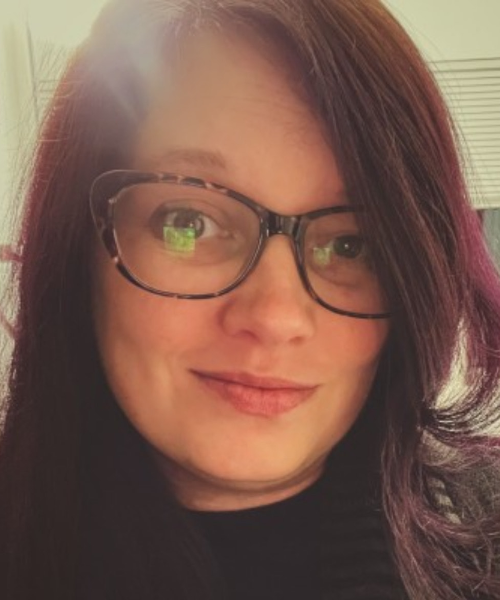
Bonnie Windham (MA 2014): Language Access Manager for the Oregon Department of Human Services
Department of Linguistics MA graduate Bonnie Windham is currently working as the Language Access Manager at the state of Oregon Department of Human Services, a job in which she ensures that residents of Oregon with communication needs can access the services they are entitled to. Bonnie has long been interested in language and social justice, a passion that started long ago, when she first encountered the idea of language revitalization as an undergraduate student.
Before joining the MA track in Language Documentation & Conservation at UH Mānoa, Bonnie was an undergraduate at Boise State University, where she participated in the Boise Language Project, a project that aims to document refugee languages in the diaspora. Bonnie was part of the first cohort that worked with speakers of Chizigua who had relocated from Tanzania and Somalia. Bonnie remembers that she investigated the phonemic inventory of that language for her final project. In addition to linguistic research, Bonnie says the project “was really about service-learning. In exchange for their language consultation expertise, we [students] helped them in their community garden to harvest their produce for sale at the local farmers’ market. We got to meet their families and get to know them. It was really fascinating.”
Bonnie’s experience at Boise State led her to pursue her MA in our Department. “The UH Mānoa Department of Linguistics is where I really learned that language intersects every identity, and is really key to many aspects of social justice. The program really deepened my understanding of the role that language has in people’s lives.”
After finishing her MA in Linguistics, Bonnie moved to Oregon, where she first dipped her toes into social justice advocacy at the government level. At the time, Measure 110, the Drug Addiction Treatment and Recovery Act, was being considered, and Bonnie became very involved in advocacy around addiction recovery and the homelessness crisis. “I gave a lot of public testimony at city council meetings in Corvallis, Eugene, and Portland, and got involved in some direct action like camp-ins on city property in defense of unhoused communities that were being swept without anywhere to go, or any support.”
Those experiences led her to enroll in a Macro Social Work program at Portland State University. “Macro social work is a type of social work where, instead of working at the individual level, you work at the community and organizational level, looking at systems of oppression and how to change them,” Bonnie explains. During her program, she interned with the Oregon Department of Human Services Equity Office. “During that time I learned a lot about anti-oppressive organizational governance, and anti-racist research and data collection practices, and I was able to intertwine that with my knowledge of linguistics.”
In 2023 Bonnie became the Language Access Manager for the Oregon Department of Human Services (ODHS), where she provides language assistance for all the programs housed in the OHDS. Bonnie explains that state governments that receive federal funding for their programs are required to provide services to people who have limited English proficiency. “We have to provide equitably accessible services for people who use languages other than English, or those who are Deaf, who experience neurodiversity, or who have developmental disabilities. Really, anyone with a communication-related need.” This includes providing Braille or large-print materials, or finding interpreters and translators.
Lately Bonnie’s office sees a lot of need for services in Mesoamerican languages spoken by Oregon residents from southern Mexico and Central America. “There’s an assumption that these people speak Spanish, but in fact they speak Indigenous languages, many of which are not traditionally written languages.”
One of the most-requested languages Bonnie encounters is Mam, a Mayan language spoken in Guatemala and Mexico. Bonnie’s job is to contract with language translation companies to provide telephone interpretation for ODHS services whenever they are needed. “Recently we contracted a community-based organization here in Oregon, a Latino father-son owned company with contacts in Mexico and Central America,” says Bonnie.
A long-term project on Bonnie’s plate right now is developing a statewide Language Access Plan for the state of Oregon. “Language Access Plans are a federal requirement. This is a very large cross-agency project involving multiple programs.” The work is deeply gratifying, Bonnie says. “I really believe in the principle of ‘No service equity without language access.’”
Bonnie has some advice for current or future students in the UHM Department of Linguistics. “My linguistics degree has made my social work degree even more valuable, and the other way around too. They enhance each other. Anything you end up doing outside of linguistics will be enhanced by what you know about language. So if there are other things you’re interested in, don’t limit yourself. Don’t be afraid to do those other things, because your linguistics degree will enhance whatever else you end up doing.”
